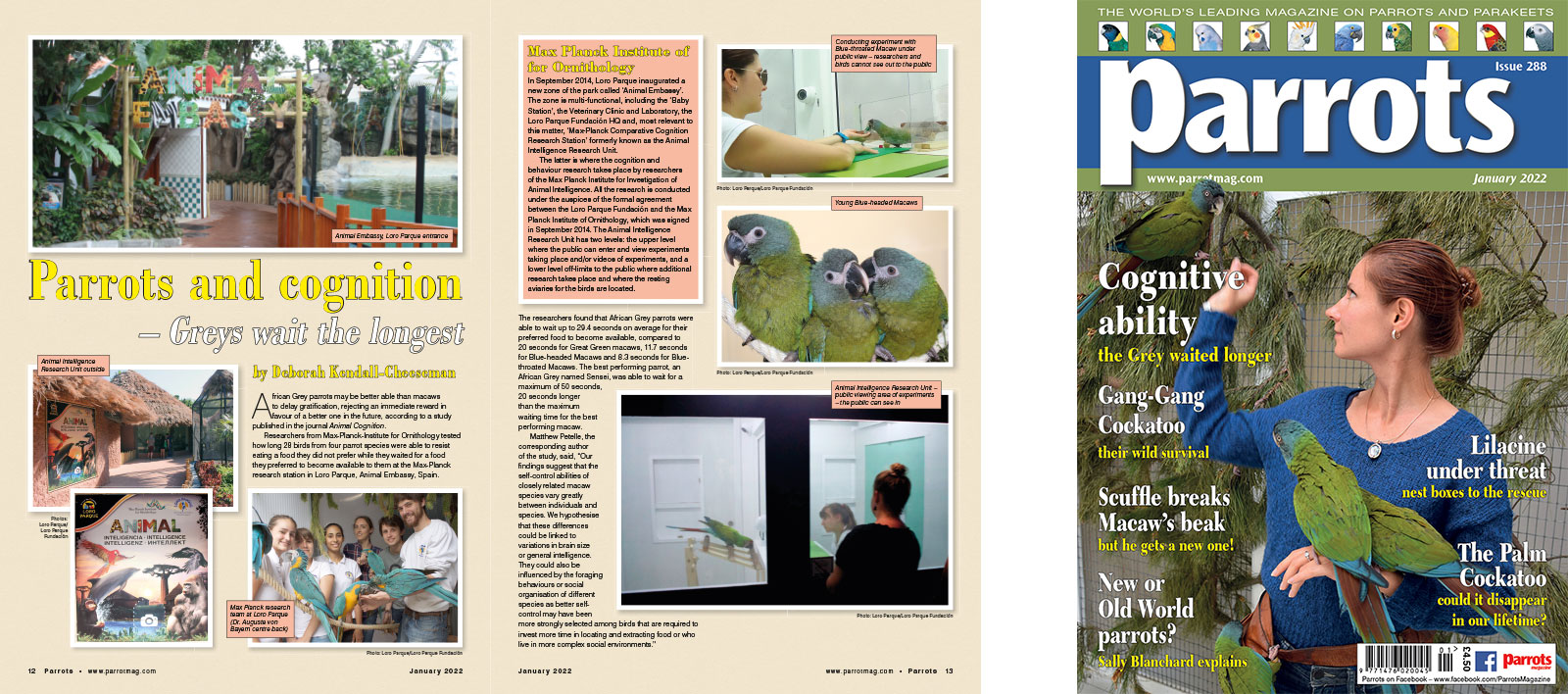
By Deborah Kendall-Cheeseman
African Grey parrots may be better able than macaws to delay gratification, rejecting an immediate reward in favour of a better one in the future, according to a study published in the journal Animal Cognition.
Researchers from Max-Planck-Institute for Ornithology tested how long 28 birds from four parrot species were able to resist eating a food they did not prefer while they waited for a food they preferred to become available to them at the Max-Planck research station in Loro Parque, Animal Embassy, Spain.
The researchers found that African Grey parrots were able to wait up to 29.4 seconds on average for their preferred food to become available, compared to 20 seconds for Great Green macaws, 11.7 seconds for Blue-headed Macaws and 8.3 seconds for Blue-throated Macaws. The best performing parrot, an African Grey named Sensei, was able to wait for a maximum of 50 seconds, 20 seconds longer than the maximum waiting time for the best performing macaw.
Matthew Petelle, the corresponding author of the study, said, “Our findings suggest that the self-control abilities of closely related macaw species vary greatly between individuals and species. We hypothesise that these differences could be linked to variations in brain size or general intelligence. They could also be influenced by the foraging behaviours or social organisation of different species as better self-control may have been more strongly selected among birds that are required to invest more time in locating and extracting food or who live in more complex social environments.”
